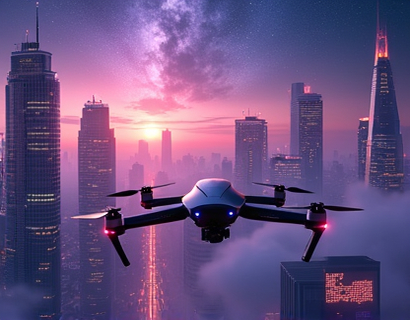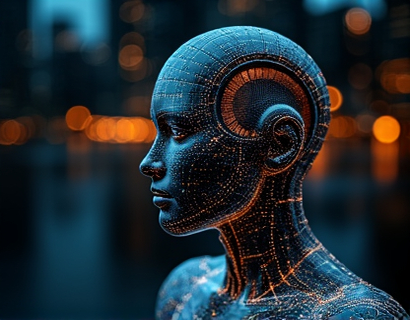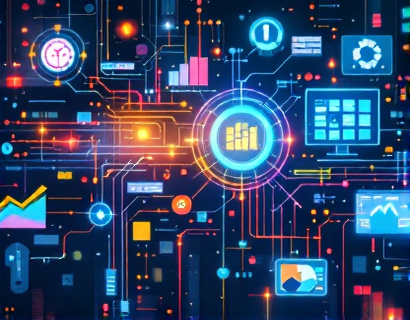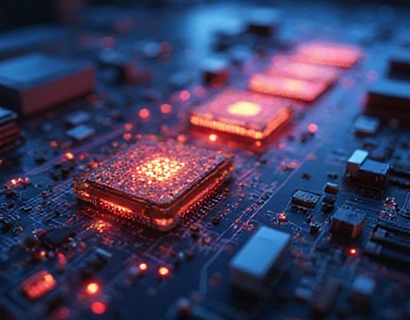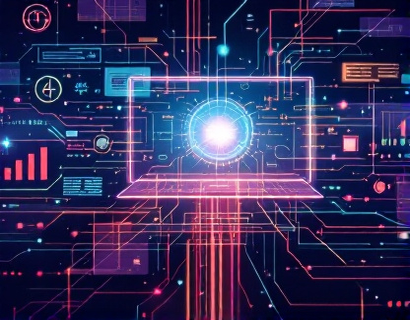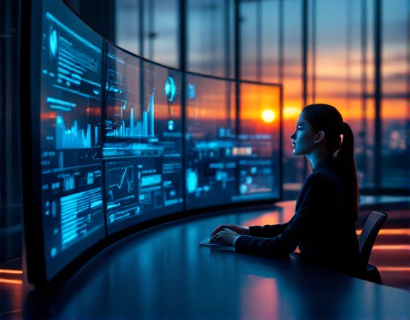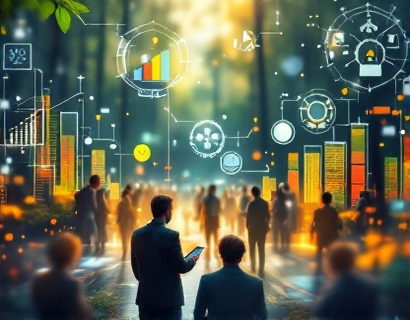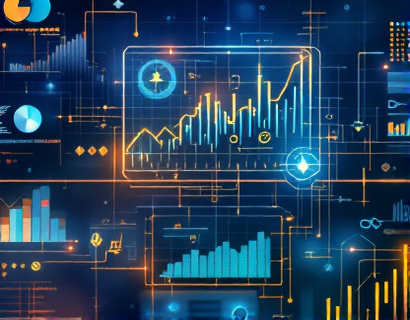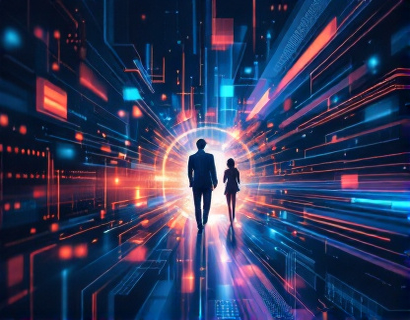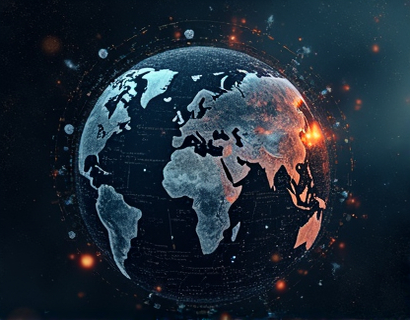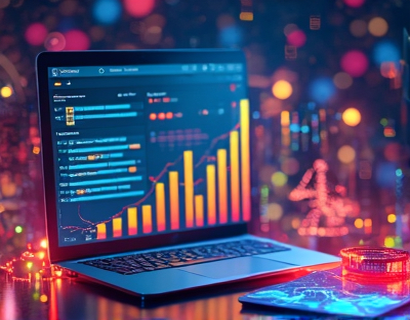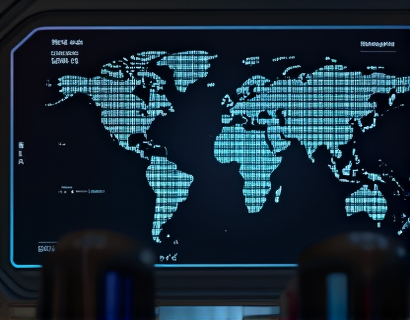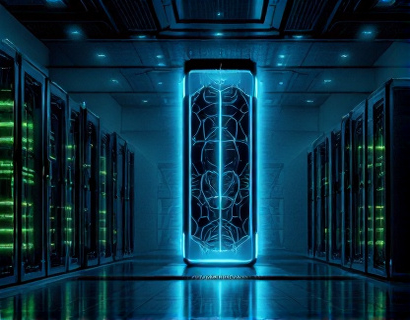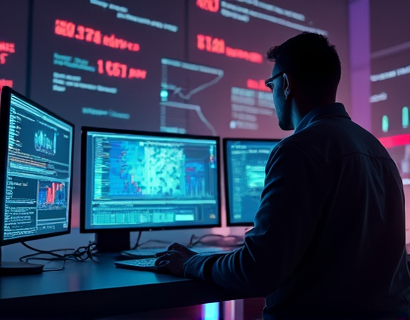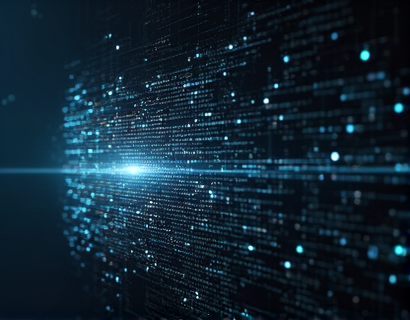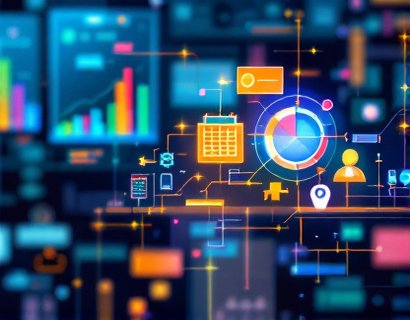Revolutionizing Digital Experiences: The Synergy of AI and Crypto
The integration of Artificial Intelligence (AI) and cryptocurrency is ushering in a new era of digital transformation, offering unprecedented opportunities for innovation and growth. This synergy is not just a technological advancement but a paradigm shift that is redefining how we interact with digital platforms and services. By merging AI-driven insights with the security and decentralization of blockchain technology, developers and entrepreneurs can unlock new dimensions of user engagement and operational efficiency.
The potential of AI in enhancing digital experiences is well-documented. Machine learning algorithms can analyze vast amounts of data to provide personalized recommendations, predict user behavior, and optimize content delivery. However, when combined with the immutable and transparent nature of blockchain, these capabilities are amplified. The result is a powerful toolkit for creating smart, secure, and highly responsive digital solutions.
Enhanced Insights Through AI and Blockchain
One of the most significant benefits of integrating AI with blockchain is the generation of enhanced insights. AI algorithms can process and analyze data from blockchain transactions, providing deep insights into user behavior, market trends, and system performance. This data is not only more accurate but also more secure, as blockchain's immutable ledger ensures the integrity of the information.
For instance, in the finance sector, AI can analyze blockchain transaction data to identify patterns and anomalies that indicate potential fraud or market manipulation. This real-time monitoring and analysis enable financial institutions to respond swiftly, minimizing risks and enhancing trust. Similarly, in supply chain management, AI can track the movement of goods through a blockchain-based system, providing transparent and verifiable data that optimizes logistics and reduces delays.
Secure Solutions with Blockchain and AI
Security is a paramount concern in the digital world, and the combination of AI and blockchain offers robust solutions. Blockchain's decentralized nature eliminates single points of failure, making it inherently more secure than traditional centralized systems. AI further enhances this security by detecting and mitigating threats in real-time.
For example, AI-powered security systems can monitor blockchain networks for unusual activity, such as unusual transaction volumes or patterns that deviate from the norm. These systems can automatically trigger alerts and implement countermeasures, ensuring the network remains secure and reliable. This proactive approach to security is crucial for building trust in digital platforms and services.
Personalized User Experiences
Personalization is key to user engagement in the digital age. AI-driven solutions can analyze user data to create highly personalized experiences, tailoring content, recommendations, and interactions to individual preferences. When this is combined with blockchain, the process becomes even more secure and transparent.
Blockchain-based identity verification ensures that user data is protected and that users have control over their personal information. AI can then use this verified data to deliver personalized experiences without compromising privacy. For instance, a streaming service can use AI to recommend shows based on a user's viewing history, while blockchain ensures that the user's viewing data is securely stored and managed.
Decentralized Applications and Smart Contracts
Decentralized applications (dApps) and smart contracts are at the forefront of the AI and blockchain revolution. dApps leverage blockchain's decentralized architecture to create applications that are resistant to censorship and control by any single entity. AI can enhance these applications by providing intelligent automation and decision-making capabilities.
Smart contracts, self-executing contracts with the terms directly written into code, can be further optimized with AI. AI can analyze historical data and predict outcomes, helping to automate complex contractual processes. For example, in the insurance industry, AI can assess risk factors and automatically trigger payouts when predefined conditions are met, all recorded on a blockchain for transparency and traceability.
Supply Chain Optimization
The supply chain industry stands to gain immensely from the integration of AI and blockchain. AI can optimize various aspects of the supply chain, from demand forecasting to inventory management, while blockchain ensures transparency and traceability. This combination can significantly reduce costs, improve efficiency, and enhance customer trust.
AI algorithms can analyze market trends and consumer behavior to predict demand accurately, allowing businesses to adjust their production and inventory levels accordingly. Blockchain can then be used to track the movement of goods, ensuring that each step of the supply chain is recorded and verifiable. This transparency helps in quickly identifying and addressing issues such as delays or quality concerns.
Healthcare Innovations
In the healthcare sector, the synergy of AI and blockchain can lead to groundbreaking innovations. AI can analyze medical data to assist in diagnosis, treatment planning, and drug discovery, while blockchain can secure and manage patient data, ensuring privacy and compliance with regulations.
For instance, AI-powered diagnostic tools can analyze medical images and patient histories to identify potential health issues with high accuracy. Blockchain can store this data securely, giving patients control over who accesses their information. Smart contracts can automate the sharing of medical records between healthcare providers, ensuring that patients receive coordinated and efficient care.
Gaming and Virtual Worlds
The gaming industry is another area where AI and blockchain are creating new possibilities. AI can enhance gameplay by creating more realistic and adaptive non-playable characters (NPCs), while blockchain can enable true ownership of in-game assets through non-fungible tokens (NFTs).
Players can own unique digital items that have real value, and AI can manage the economy of these virtual worlds, ensuring fair play and preventing cheating. Blockchain ensures that these assets are securely stored and can be traded or sold, providing a new revenue stream for gamers and developers alike.
Challenges and Considerations
While the potential of AI and blockchain is vast, there are challenges that need to be addressed. Scalability remains a significant issue for blockchain technology, as many networks struggle to handle high transaction volumes. AI algorithms also require substantial computational resources, which can be costly and energy-intensive.
Moreover, the regulatory landscape for both AI and blockchain is still evolving. Ensuring compliance with data protection laws and navigating the legal implications of decentralized systems are critical considerations for developers and businesses. However, these challenges are opportunities for innovation, driving the development of more efficient and compliant solutions.
Future Prospects
The future of AI and blockchain is bright, with continuous advancements promising even greater integration and innovation. As technology evolves, we can expect to see more seamless combinations of these tools, leading to smarter, more secure, and more user-friendly digital experiences.
For tech innovators and crypto enthusiasts, the next generation of digital solutions will be shaped by the synergy of AI and blockchain. By embracing these technologies, professionals can create groundbreaking applications that not only meet current needs but also anticipate future demands. The path ahead is exciting, and the possibilities are endless.



